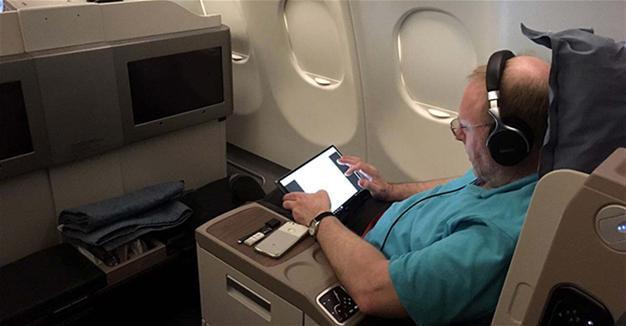Laptop ban may be lifted following US delegation’s checks at Istanbul’s Atatürk airport: Minister
KARS

A delegation from the United States will visit Turkey soon to examine whether the country’s key airports are complying with its latest security standards. Following these checks, the U.S. laptop ban may be lifted, a top Turkish official said on July 2.
In March, the U.S. banned laptops in cabins on flights to the United States originating at 10 airports in eight countries – Egypt, Morocco, Jordan, the United Arab Emirates, Saudi Arabia, Kuwait, Qatar and Turkey – to address fears that bombs could be concealed in electronic devices taken aboard aircraft. The U.K. quickly followed suit with a similar set of restrictions.
Last week, Turkey began using tomography devices installed at Istanbul’s Atatürk Airport for U.S.-bound flights.
In a televised interview with private broadcaster NTV, Transport, Maritime Affairs and Communications Minister Ahmet Arslan said security measures at Turkey’s airports met international standards.
“We have been in talks with both the U.S. and Britain regarding the issue. We have told them the security measures at our airports meet global standards. Following the laptop ban from these two countries, we had immediately ordered the required tomography devices, which are a must to meet their standards. A U.S. delegation will visit us next week. This implementation may at least bring Turkey to a different level,” Arslan added.
Meanwhile, the U.S. has lifted a ban on laptops in cabins on flights from Abu Dhabi to the United States, saying Etihad Airways had put in place the required tighter security measures.
Etihad welcomed the decision on July 2 and credited a facility at the Abu Dhabi International Airport, where passengers clear U.S. immigration before they land in the United States for “superior security advantages” that had allowed it to satisfy U.S. requirements.
 A delegation from the United States will visit Turkey soon to examine whether the country’s key airports are complying with its latest security standards. Following these checks, the U.S. laptop ban may be lifted, a top Turkish official said on July 2.
A delegation from the United States will visit Turkey soon to examine whether the country’s key airports are complying with its latest security standards. Following these checks, the U.S. laptop ban may be lifted, a top Turkish official said on July 2.